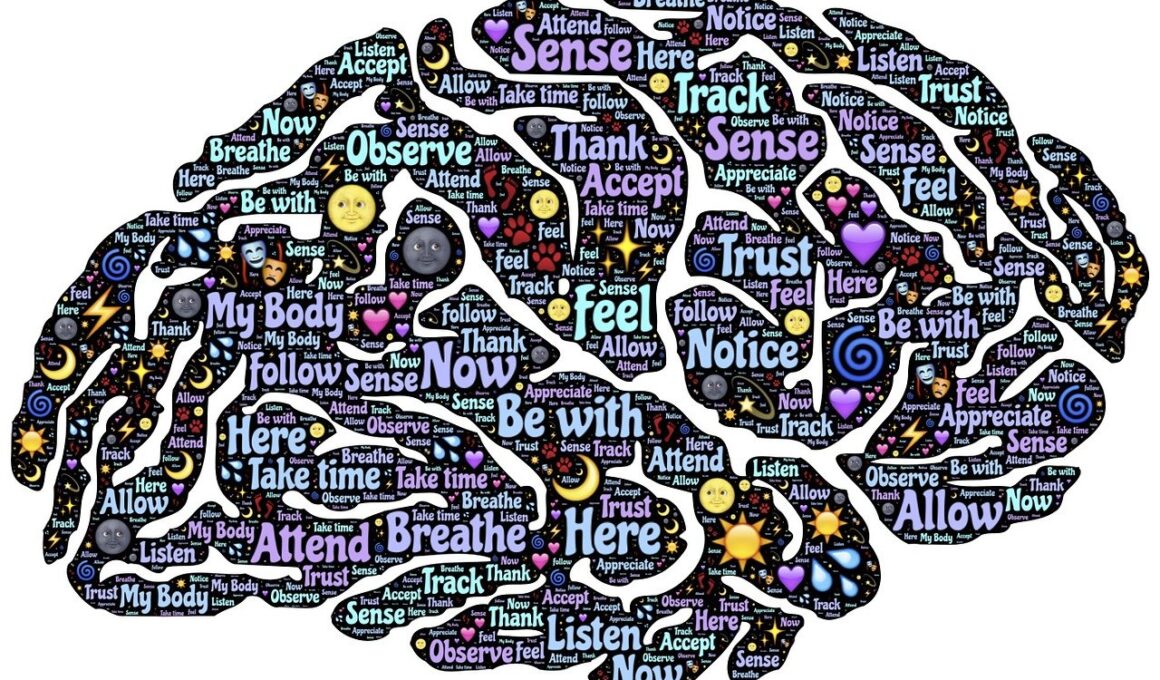The Impact of Meditation on Physical Health
Meditation has been recognized for its profound effects on physical health, which often complement its mental and emotional benefits. Numerous studies reveal that individuals who engage in regular meditation experience improvements in various health parameters. This ancient practice helps in lowering blood pressure, enhancing immune function, and promoting overall well-being. Enhanced relaxation contributes significantly to these outcomes as stress is a major factor affecting health negatively. By consistently engaging in meditation, practitioners learn to manage stress more effectively, thereby reducing its harmful effects on the body. This is particularly crucial in today’s fast-paced society, where chronic stress can lead to severe health issues such as heart disease and autoimmune disorders. Additionally, meditation encourages mindfulness, allowing individuals to be more aware of their bodily sensations and feelings. This awareness often leads to healthier choices, such as improved diet and increased physical activity, thus creating a virtuous cycle of health benefits. Research has shown that even short, daily sessions can yield substantial health improvements. As a result, many health professionals now recommend meditation not just for mental clarity and focus but also for its tangible benefits to physical health.
Meditation’s Role in Stress Reduction
One of the most significant impacts of meditation on physical health is its ability to reduce stress. Stress is widely recognized as a primary contributor to many chronic illnesses, including hypertension and cardiovascular disease. By lowering stress levels, meditation helps to alleviate the strain on various bodily systems. This not only enhances mental clarity but also leads to better overall physical health. Many practitioners find that dedicating even a few minutes each day to meditation reduces their anxiety, allowing them to confront daily challenges more calmly. Various types of meditation, such as mindfulness and transcendental meditation, have been linked to lower levels of the stress hormone cortisol. When cortisol levels decrease, the body enters a more relaxed state, promoting regeneration and healing across systems. The physiological effects include a decrease in heart rate and improved blood circulation, both of which are beneficial for heart health. Furthermore, lower stress levels can lead to weight loss, as stress often triggers unhealthy eating habits. Embracing meditation practices can thus lead not only to mental peace but also to a healthier, more balanced emotional and physical state.
Beyond stress reduction, meditation positively impacts immune system functioning. A strong immune system is essential for combating illnesses and maintaining health. Studies indicate that those who meditate regularly exhibit higher levels of immune markers, suggesting better resistance to infections. This is critical; with ongoing health crises around the world, a robust immune system can mean the difference between health and illness. Meditation promotes positive emotions and mental resilience, which are also linked to improved immune response. Various approaches, including guided imagery and loving-kindness meditation, encourage positive thoughts and reduce feelings of isolation. By fostering a supportive mental environment, practitioners enhance their overall well-being and immune responses. Consequently, this reinforces the connection between mental and physical health. Regular meditation can also help mitigate the impact of chronic conditions by promoting an overall healthier lifestyle. Improved sleep quality, for example, often results from regular meditation practices, which further boosts immunity and the body’s ability to heal. Thus, the practice not only fosters mental clarity but also cultivates a stronger, more resilient body capable of defending itself against disease.
Meditation and Cardiovascular Health
Another impressive benefit of meditation is its positive influence on cardiovascular health. Recent studies have demonstrated that individuals who practice meditation have lower risk factors associated with heart diseases, such as high blood pressure and cholesterol levels. Mindfulness meditation, in particular, encourages participants to focus on their breath and body, which leads to relaxation of blood vessels and improved circulation. This physiological response helps lower heart rate and allows the heart to function more efficiently. By practicing meditation regularly, individuals can develop better awareness of body signals that warning about heightened stress or anxiety, enabling them to take proactive measures. In addition to reducing blood pressure, meditation can help lower the likelihood of heart attacks and strokes. This is particularly important for individuals who may be predisposed to cardiovascular conditions due to family history or lifestyle factors. Such preventive measures are vital in today’s health landscape, where coronary diseases remain a leading cause of morbidity and mortality. Incorporating meditation as part of a daily routine may lead to substantial long-term benefits for heart health and overall quality of life.
Moreover, regular meditation can improve sleep quality and combat insomnia, which are crucial factors for maintaining overall health. Poor sleep can exacerbate a range of issues, including weight gain, decreased cognitive function, and heightened stress levels. Meditation encourages relaxation, enabling individuals to wind down and prime their bodies for restful sleep. Techniques such as body scans and breath-focused meditations can effectively calm the mind, facilitating a more peaceful state conducive to sleep. Research supports the connection between meditation and better sleep outcomes, indicating that even brief relaxation meditation sessions lead to improved sleep quality. For many, adopting a meditation practice can be a game-changer in overcoming sleep difficulties that plague modern society. Mindful meditation not only enhances sleep duration but also improves sleep efficiency. This all contributes to a restorative cycle that rejuvenates both body and mind. As sleep refreshes and repairs the body, better sleep leads to improved health outcomes. Consequently, individuals who incorporate meditation into their evening routines discover significant benefits in managing sleep-related issues while enhancing overall physical health.
Weight Management through Meditation
Another area where meditation shows promise is in weight management. Many individuals struggle with weight-related challenges exacerbated by stress, anxiety, and unhealthy lifestyle choices. Meditation fosters mindfulness not only of thoughts but also of eating habits. Those who practice mindfulness during meals often find themselves more in tune with their hunger and fullness cues. This awareness can lead to healthier food choices and a more balanced diet, ultimately affecting weight management positively. Evidence suggests that incorporating mindfulness meditation can assist in reducing emotional eating, which is often a barrier to successful weight loss. By breaking the cycle of mindless eating, individuals can lead healthier lifestyles and make more intentional decisions concerning their diets. Furthermore, meditation promotes self-discipline and mental strength, essential components in achieving and maintaining a healthy weight. Participants in meditation programs often report increased motivation to engage in physical activities and make healthier food choices. Therefore, those seeking weight loss can find valuable support through meditation, ensuring long-lasting results. This holistic approach connects physical health with mental well-being, leading to a more comprehensive strategy for weight management.
Lastly, meditation can enhance physical performance and recovery, making it a valuable tool for athletes and active individuals. Focusing on breath control and mental imagery can lead to improved concentration and overall performance during exercises or sports. Many athletes use meditation techniques to prepare mentally for competitions, improving their focus and reducing performance anxiety. Upon completion of physical activities, meditation can also aid in quicker recovery by promoting relaxation and reducing muscle tension. Techniques such as visualization allow athletes to mentally rehearse movements and processes, enhancing skills and performance outcomes. This aspect of meditation not only supports physical health but also complements any training program by improving mental resilience. Research indicates that athletes who meditate experience higher levels of patience and commitment, contributing to their quests for success. Thus, incorporating meditation into training routines can lead to better performance and, ultimately, sports achievements. In a world where physical fitness and performance are increasingly prioritized, meditation serves as an accessible and effective tool for athletes striving to optimize their physical health and capabilities.
In summary, the multifaceted benefits of meditation underscore its critical importance in promoting physical health. With its proven impact on stress reduction, immune support, cardiovascular health, improved sleep quality, weight management, and enhanced physical performance, it’s clear that embracing meditation can lead to a healthier, more balanced life. As awareness of these benefits spreads, more individuals are likely to include meditation in their wellness routines. Engaging in meditation offers an invaluable opportunity for individuals seeking to improve their overall health and well-being. Practicing regularly can foster a shift in lifestyle choices and encourage holistic health perspectives that include mental, emotional, and physical aspects. The evidence continues to support the positive correlations between meditation and physical health, further validating its role as a health-promoting practice. Individuals interested in experiencing these benefits may start by allocating just a few minutes a day to meditate. With commitment and dedication, the long-term effects can be transformative. Therefore, meditation not only nurtures the mind but also cultivates a resilient and thriving body that can withstand the challenges of modern living. Embracing this practice is an investment in a better and healthier future for all.


